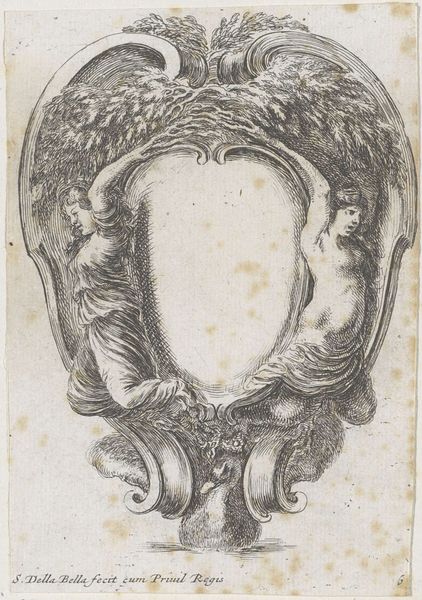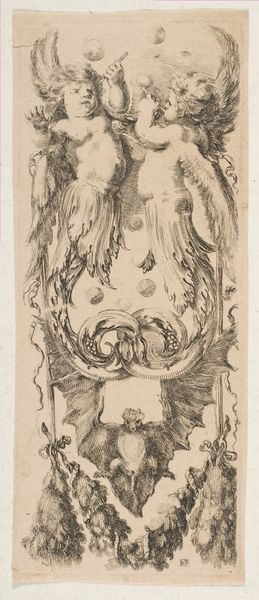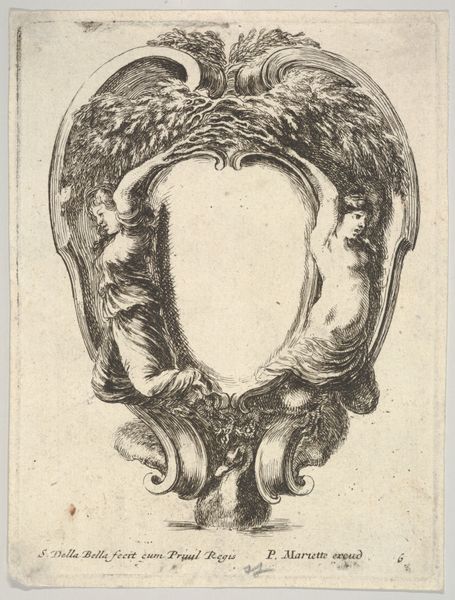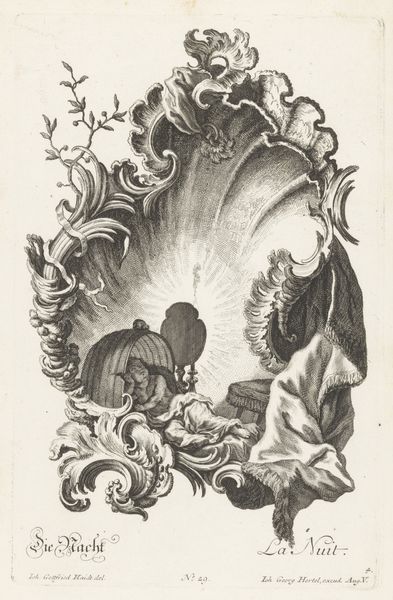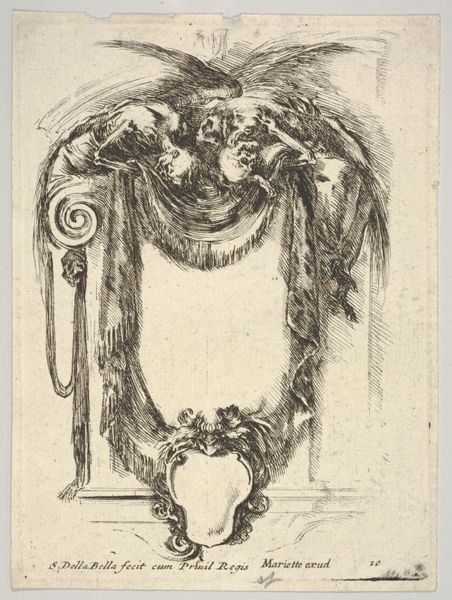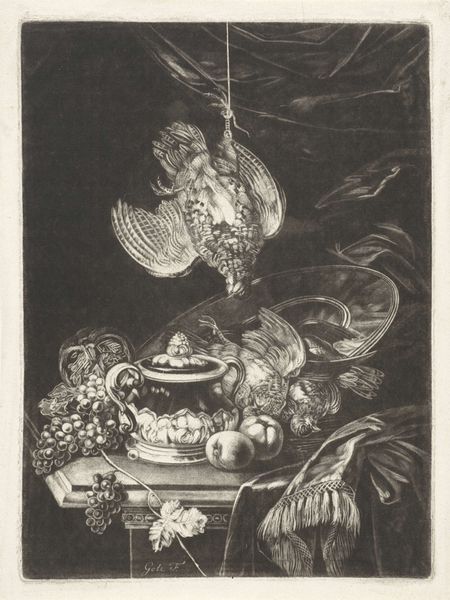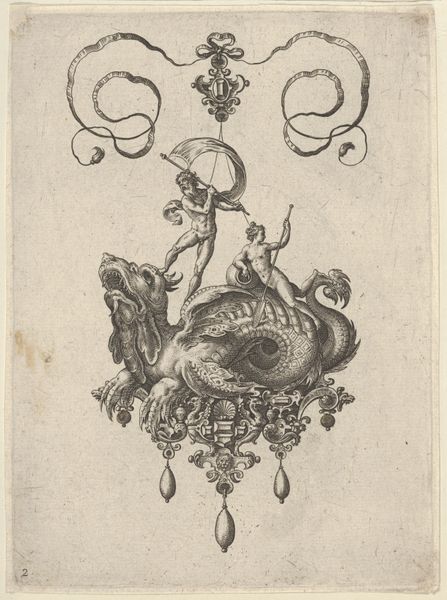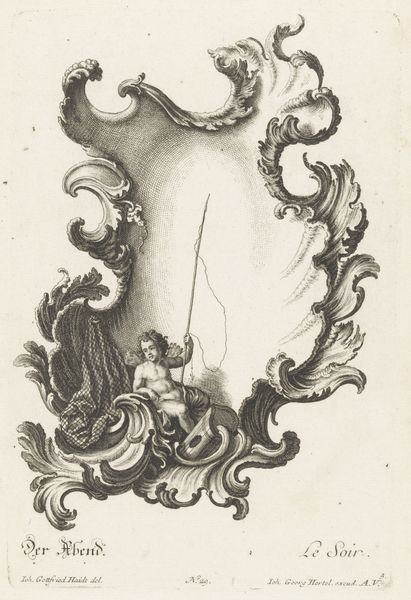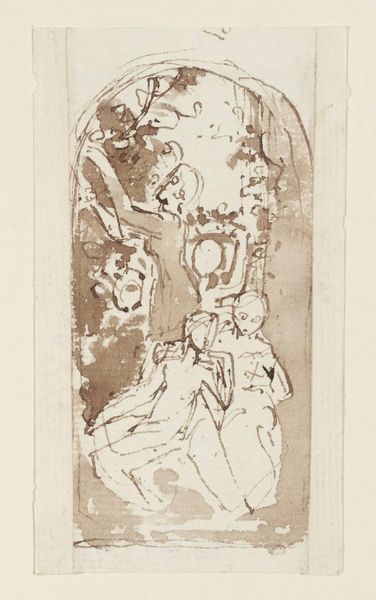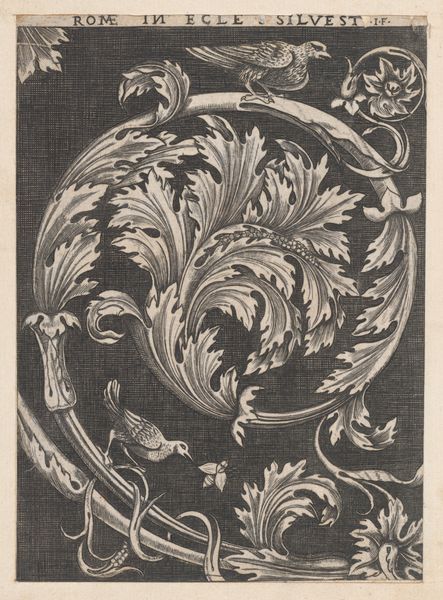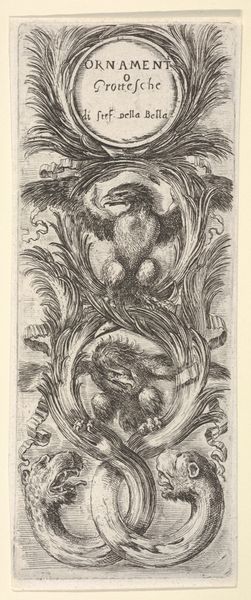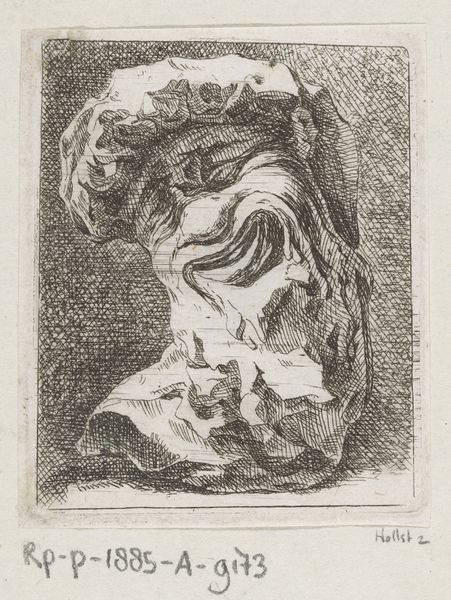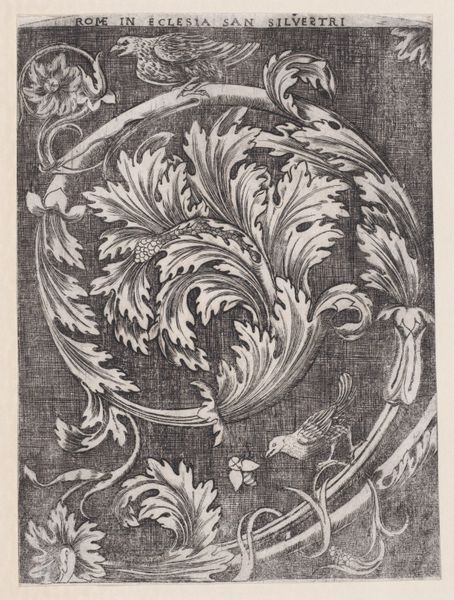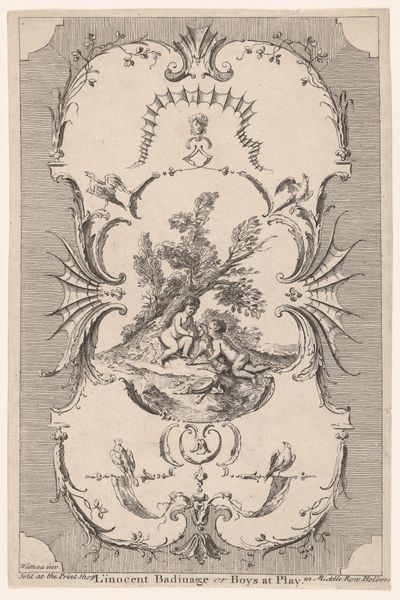
Le Papillon et la Tortue (The Butterfly and the Turtle) after 1756
0:00
0:00
drawing, print, engraving
#
drawing
#
toned paper
#
allegory
# print
#
pen sketch
#
pencil sketch
#
old engraving style
#
personal sketchbook
#
ink drawing experimentation
#
pen-ink sketch
#
line
#
pen work
#
sketchbook drawing
#
sketchbook art
#
engraving
#
rococo
Dimensions: plate: 17.2 x 13.5 cm (6 3/4 x 5 5/16 in.)
Copyright: National Gallery of Art: CC0 1.0
Charles Germain de Saint-Aubin created this print, “The Butterfly and the Turtle,” probably sometime in the mid-18th century in France. It’s a whimsical image, and likely meant for the private enjoyment of an aristocratic collector. We see a human-like figure with butterfly wings riding atop a turtle, guiding it with reins like a charioteer. The image plays with ideas about movement, speed, and control. The butterfly, known for its flightiness, is paired with the slow and steady turtle. Does the butterfly rider have the skill to properly direct the turtle? This print is a commentary on social structures. The aristocratic class often enjoyed images that reflected their own status and power, sometimes through allegories and playful representations. Prints like these were not typically displayed in public museums or galleries. Instead, they were collected and viewed in private collections, often bound in albums. By studying prints like this, along with letters, inventories of collections, and other historical documents, we can better understand the social and institutional context in which these images were created and consumed.
Comments
No comments
Be the first to comment and join the conversation on the ultimate creative platform.
